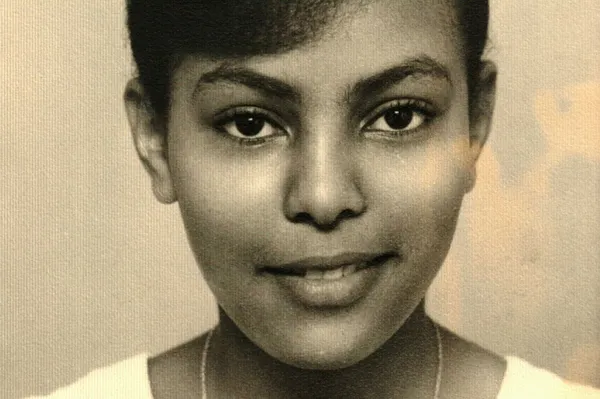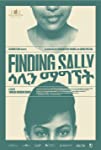Eye For Film >> Movies >> Finding Sally (2020) Film Review
Finding Sally
Reviewed by: Jennie Kermode

The beautiful daughter of an imperial dignitary. A daring rebel leader. A romance that turned lives upside down and fractured a family, set against the background of civil war. Does it sound like a Hollywood adventure film? It's actually the story of filmmaker Tamara Mariam Dawit's aunt, and it's more complicated and more interesting than that.
Like her mother and aunts before her, Dawit was raised in Canada, far from the troubles of her ancestral homeland, and she only learned of the existence of her Aunt Sally (Selamawit) as an adult, when enquiring about an unfamiliar figure in a photograph. She was warned that she'd have her work cut out for her if she wanted to learn more - not because the family was trying to keep secrets, but simply because, after they pate ways, it was very difficult to keep track of what happened to her. Intrigued, Dawit travelled to Ethiopia to researching the mysterious figure, in the process connecting with her roots and coming to understand much more about the country's troubled history.
Dawit isn't one to be waylaid by romantic fantasies. She soon determines that Sally was no wide eyed innocent whose actions were dictated by her heart. Drawing on conversations with relatives who still live in the country, she paints a picture of a young woman with a thorough political education who became concerned by the behaviour of Emperor Haile Selassie's regime during a lengthy visit in 1973. Her relationship with Tselote Hizkias, leader of Communist group the Ethiopian People’s Revolutionary Party, seems to have been secondary to this, though there's some suggestion that her feelings for him led to dramatic changes in her behaviour. Whatever the two might have done in different circumstances, they were overwhelmed by the dramatic political changes of 1974 and the rise of the Derg, going on the run. From then only fragments of information are available. A letter left for a sister to find. News reports. Elderly peasants in a remote village who remember a kind woman who brought them medicine.
The temptation to think of Sally as a heroine whose focus was on healing the injured is complicated by evidence of her involvement in a bombing, but one person's terrorist is another's freedom fighter. She was clearly an idealist and Dawit positions her as a young person trying to do the best she could for her country, in contrast to the exploitation of the imperialists or the brutal, mercenary Communism of the Derg. Less is said about Hizkias and it would be interesting to hear from people who knew him - without that, he becomes a creature of legend rather than flesh. History has been sympathetic to the two of them and Dawit finds plenty of support and sympathy from those she encounters.
In the end, this is less interesting as a portrait of two people who lived dramatic lives and more interesting as a picture of the effect this had on those who knew them, especially a previously respected family which saw its fortunes turned upside down by suspected involvement with traitors at the same time as facing the distress anyone would feel at the thought of a loved one facing so much danger. it's a good (albeit somewhat slanted) introduction to late 20th Century Ethiopian history and it's a fascinating personal story.
Reviewed on: 29 Apr 2020

















